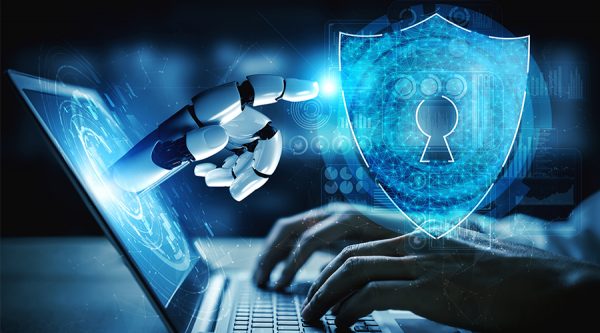In this digital age, data is essential to organizations. This asset consists of financial records, proprietary research, and client data. Unfortunately, data protection is now more important than ever due to the rise in cyber threats. Here are some cybersecurity recommended practices to help you protect your data and maintain company continuity.
Employee Training: An organization’s workforce serves as its first line of defense against online attacks. As a result, training and awareness on cybersecurity should be ongoing. It’s critical to train employees to recognize typical dangers, such phishing emails, and to stress the value of setting strong, one-of-a-kind passwords. Since human mistake is one of the main causes of data breaches, doing this will greatly lower your likelihood of their happening.
Data Encryption: The most crucial defense against unauthorized access to your sensitive information is encryption. Encryption of all sensitive data, whether in transit or at rest, must be guaranteed. Data that has been encrypted and rendered unreadable is no longer useful to unauthorized parties in the absence of the decryption key. This is an essential step in protecting the privacy of your data.
Frequent Software Updates: Patch known vulnerabilities in your operating systems, apps, and security software on a regular basis to stop hackers from using these flaws to access your systems without authorization.
Access controls: Strong access controls must be put in place to limit access to sensitive information to those who need it to perform their jobs. By doing this, the chance of data leaks or illegal access is reduced.
Multi-factor authentication: Requiring multi-factor authentication (MFA) is needed in order to gain access to sensitive systems and data. More protection is offered by MFA than by a simple password. Three things are usually involved: something you possess (like a mobile device), something you know (like your password), and something you are (like a fingerprint or facial recognition). By mandating the use of all three factors for authentication, you may greatly lower the possibility of unwanted access and shield your private data from possible security breaches.
Frequent Backups: In cybersecurity, regular backups are essential. Data recovery is made possible by backups in the event of catastrophes or cyberattacks. It is crucial to frequently verify the dependability of backups and to keep them securely.
Incident Response Strategy: Create an incident response strategy to address security breaches. There is not much time left. Limiting harm and any legal repercussions can be achieved by knowing how to control, look into, and disclose a breach.
Vendor Security: It is essential to make sure that any outside vendor with access to your data complies with the security requirements set out by your company. This is crucial since your data could still be impacted by a vendor security incident. Thus, in order to guarantee the safety and security of your data, you must perform due diligence on the security policies of vendors.
Security audits and testing: Conduct routine security evaluations, such as penetration tests and audits, to identify and fix vulnerabilities before hackers take advantage of them.
Cyber Insurance: To protect against the financial consequences of cyberattacks, such as legal bills, data recovery costs, and consumer notification costs, think about getting cyber insurance.
Continuous Monitoring: For complex cyberthreats, use real-time threat detection in conjunction with continuous monitoring.
Data Privacy Compliance: To prevent legal problems and data breaches, make sure your company complies with all applicable data privacy standards.
In summary, it is critical to consistently safeguard company data and to take a proactive, watchful stance. You may dramatically lower the risk of data breaches and guarantee the confidentiality, availability, and integrity of your most important information by putting the finest cybersecurity procedures into effect. It’s crucial to keep in mind that cybersecurity is an ongoing battle against attacks that are always changing, so staying informed on the most recent advancements is essential to having a strong defense.








